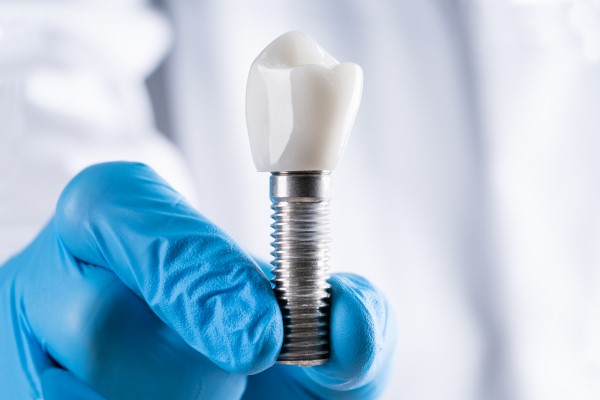How to Take Care of Dental Implants

People who have been recommended to get dental implants may be wondering how to take care of them after surgery. Implants are artificial teeth held in place by metal posts positioned in the gums. They are constructed to look and function like natural teeth; thus, managing them is similar to caring for regular teeth. Once the post, abutment, and crown are surgically placed in the mouth, dental patients are responsible for taking good care of their implants to ensure a longer life.
Early care
Immediately following the final phase of dental implant surgery, patients may experience common discomforts including swelling, bruising, pain, and minor bleeding. Medication may be prescribed by a dental professional to help minimize pain during the first few days.
Individuals need to eat a diet that consists mostly of soft foods, and avoid using straws for at least two or three days. Foods and liquids that are extremely hot should be avoided, as well as foods like popcorn, rice, and nuts that can become easily lodged in the surgical site.
Swelling can be managed by holding an ice pack on the jaw. Placing a cold ice pack on the area for about 15 minutes at a time reduces swelling and inflammation.
Long-term care
A few days after getting dental implants, patients should notice improvements in their condition. If symptoms get worse after the first week, contact a dental professional who can address any issues with proper healing. Otherwise, people should follow the instructions given by dental professionals to take care of implants.
Maintain good oral hygiene
First, individuals should practice good oral care. Brush all teeth, both natural and artificial, at least twice a day and floss once a day. If desired, patients can use an interdental brush to clean in between the teeth more effectively.
Visit a dental professional regularly
Next, people should visit a dental professional at least twice a year. Some patients may need to schedule dental visits more frequently depending on symptoms. It is particularly important to have regular check-ups to examine the health and function of the implants.
Avoid damaging habits
Finally, there are a variety of habits that cause damage to teeth, including smoking, teeth grinding, and consuming tooth-staining products. As well as avoiding these, it is wise for patients to not bite ice and hard candy because it can break the crowns on implants. All of these habits can lead to premature damage and should be avoided.
Seek care for complications
It typically takes several months for implants to completely bond with the jawbone. However, by two weeks after surgery individuals should notice an improvement in pain. If patients notice any signs of new pain or pain that has not gone away after two weeks, then they should schedule an appointment with a dental professional.
Conclusion
The majority of dental implants are inserted successfully with no complications. To help ensure this, individuals should follow the recommendations from a dental professional to take good care of their implants.
Request an appointment here: https://www.halhirschdmd.com or call Hal M. Hirsch DMD, FAGD at (856) 270-6447 for an appointment in our Laurel Springs office.
Check out what others are saying about our dental services on Yelp: Dental Implants in Laurel Springs, NJ.
Related Posts
A broken dental crown is often a sudden issue. Dental crowns are permanent dental restorations. A crown may dislodge because of an injury, an accident, wear, or even old age. The dentist will determine if your crown needs repairs or a replacement. If you want to know what the dentist does to repair or replace…
A dental veneer is a popular cosmetic dentistry solution designed to enhance the appearance of teeth by improving their shape, color, and alignment. Proper care and maintenance are essential to maintain a dental veneer's longevity and aesthetic appeal. Following a few practical steps, patients can ensure their veneers remain durable and beautiful for years.Good oral…
Many people will lose at least one tooth at some point in their lives, which can lead to oral health issues. Fortunately, a restorative dentist can replace missing teeth in several ways. These options can help patients restore the function and appearance of their smiles.Bone tissues need to be regularly stimulated to remain healthy, as…
A tooth abscess is an infection that begins in the mouth and can spread to other body regions. Gum disease and tooth decay are often the outsets of a spot. A tooth abscess is much more likely in those with poor oral hygiene habits. Anyone experiencing the condition should visit the emergency dentistry office as…
